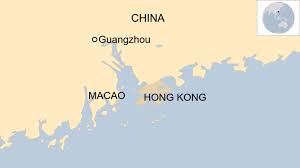Macau’s Reintegration with China: A Peaceful Transition under ‘One Country, Two Systems’
Introduction
The reintegration of Macau into the People’s Republic of China in 1999 marked a significant moment in post-colonial East Asian geopolitics. Formerly a Portuguese colony for over four centuries, Macau returned to Chinese sovereignty under the “one country, two systems” principle—an arrangement that also governed Hong Kong’s handover from Britain two years prior. However, unlike Hong Kong, Macau’s transition was notably smooth, marked by minimal civil unrest and rapid economic integration. This article examines the historical context of Macau’s colonial legacy, the contributing factors to its peaceful transition, and the socio-political and economic outcomes that followed, offering a comparative lens on the region’s unique trajectory.

Historical Background
Macau’s colonial history began in 1557 when the Portuguese established a permanent settlement under a leasing agreement with the Ming Dynasty. Over time, Macau developed into a strategic trading hub linking China with Europe and other Asian ports. Its colonial status was formalised in the Sino-Portuguese Treaty of Peking (1887), which granted Portugal “perpetual occupation and government” of Macau while maintaining Chinese sovereignty in principle.
In 1987, the Sino-Portuguese Joint Declaration was signed, setting the framework for Macau’s return to China. Echoing the agreement made with Britain regarding Hong Kong, it guaranteed that Macau would retain its capitalist system and enjoy a “high degree of autonomy” for 50 years after the 1999 handover. On 20 December 1999, Macau officially became a Special Administrative Region (SAR) of China.
Key Factors in the Peaceful Transition
1. Demographic and Political Simplicity
Macau’s comparatively smaller population and limited civic mobilisation contributed to a more stable political environment. Unlike Hong Kong, where pro-democracy activism had deep roots, Macau experienced relatively muted political dissent, with no significant grassroots movement advocating for independence or radical reform.
2. Economic Dependence on Mainland China
Macau’s economy was heavily dependent on mainland Chinese tourism and trade, especially within the gaming sector. This interdependence created a natural incentive for cooperation with Beijing, making resistance to reintegration economically unfavourable.
3. Cultural and Political Alignment
The local population displayed a generally favourable attitude toward the handover. Many Macanese residents viewed reintegration as a return to cultural and national identity, aided by the fact that a large portion of Macau’s population was ethnically Chinese and retained cultural links with the mainland.
4. Diplomatic Pragmatism of Portugal
Portugal’s approach to the negotiations was markedly less confrontational than Britain’s in the Hong Kong case. Portuguese officials worked closely with Chinese counterparts, prioritising mutual respect and smooth transition over prolonged debate about political guarantees, thus enabling a less contentious process.
Effects of the Transition
Economic Impact
Post-handover, Macau’s economy experienced unprecedented growth, largely driven by Chinese investment and policy support.
- The liberalisation of the casino industry in the early 2000s, backed by Beijing, positioned Macau as the world’s largest gambling hub, surpassing Las Vegas in gross gaming revenue.
- Infrastructure development surged, including new transport links such as the Hong Kong–Zhuhai–Macau Bridge, facilitating regional integration and tourism.
- Macau’s gross domestic product (GDP) increased substantially, fuelled by the influx of mainland tourists and capital.
Political Developments
Despite Beijing’s oversight, Macau retains a semi-autonomous political structure.
- The Chief Executive is selected through a Beijing-approved electoral committee, while the Legislative Assembly includes both elected and appointed members.
- Macau’s civil society remains largely apolitical, with few large-scale protests or public dissent, in contrast to frequent unrest in neighbouring Hong Kong.
- Pro-China sentiment has dominated political discourse, and educational reforms have increasingly reflected mainland narratives of national unity.
International Responses
Global reactions to Macau’s handover were largely subdued.
- Portugal accepted the transition as a culmination of its decolonisation policy and expressed satisfaction with China’s adherence to the Joint Declaration.
- The European Union and other Western governments acknowledged the process with limited concern, particularly as international attention remained focused on Hong Kong’s more volatile developments.
- International bodies such as the United Nations recognised the legal legitimacy of the handover and generally viewed it as a successful model of peaceful sovereignty transfer.
Conclusion
Macau’s return to Chinese rule offers a rare example of a non-violent and economically successful post-colonial transition. Key factors such as a small, politically quiet population, economic integration with China, and diplomatic cooperation with Portugal contributed to this distinctive outcome. Unlike Hong Kong, which has faced significant political challenges under the same constitutional framework, Macau illustrates how differing historical, demographic, and diplomatic variables can result in contrasting outcomes under “one country, two systems.” While questions about long-term autonomy persist, Macau’s trajectory thus far has exemplified a model of stability and economic integration within the broader context of Chinese sovereignty.
